- Owings Mills: (443) 394-9222
- Marriottsville: (443) 545-5566
Menu
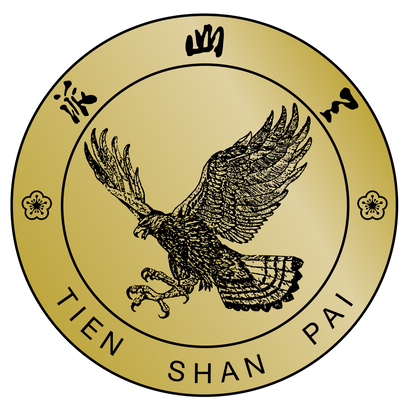
The Profound Benefits of Strength Training for Martial Artists
January 03, 2024 4 min read

Martial arts is a discipline that goes beyond mere physical movements; it's a holistic approach to self-improvement and mastery. While traditional training methods emphasize technique, agility, and mental fortitude, the incorporation of strength training has emerged as a game-changer for martial artists worldwide. In this blog, we'll delve into the myriad benefits that strength training brings to practitioners ofmartial arts Owings Mills, enhancing not only their physical prowess but also contributing to mental resilience and overall well-being.
Elevating Performance Levels
One of the primary advantages of integrating strength training into a martial artist's regimen is the remarkable enhancement of overall performance. Strength training targets specific muscle groups, promoting increased power, speed, and endurance. This heightened physical prowess is especially crucial for martial artists, as it directly influences their ability to execute techniques with precision and intensity.
Strength training exercises, such as weightlifting, plyometrics, and resistance training, build a foundation of muscular strength that translates into improved striking power, grappling abilities, and swift defensive maneuvers. As a martial artist becomes physically stronger, they can generate more force behind their kicks and punches, making them formidable opponents in both sparring and competitive settings.
A study published in the Journal of Strength and Conditioning Research found that judo athletes who participated in a structured strength training program experienced significant improvements in their throwing performance compared to those who relied solely on skill-based training. This underscores the idea that combining technical expertise with enhanced physical strength can elevate a martial artist's effectiveness in combat situations.
Injury Prevention and Rehabilitation
Martial arts places significant stress on the body, and injuries are not uncommon. Incorporating strength training, however, can act as a powerful preventative measure. Strengthening the muscles around joints and improving overall stability reduces the risk of injuries during training and competitions.
Additionally, strength training plays a crucial role in rehabilitation for martial artists who have experienced injuries. By focusing on targeted exercises, practitioners can expedite the recovery process, rebuilding strength and flexibility in the affected areas. This not only facilitates a quicker return to training but also minimizes the likelihood of recurring injuries.
Enhanced Mental Toughness
While martial arts undoubtedly requires physical prowess, mental toughness is equally vital. Strength training challenges individuals to push their limits, fostering mental resilience that seamlessly translates to the martial arts arena.
Engaging in intense strength workouts demands focus, discipline, and perseverance—traits that align seamlessly with the mental attributes cultivated in martial arts. The ability to overcome physical challenges in the gym contributes to a fighter's mental fortitude, allowing them to remain composed and focused during high-pressure situations in the dojo or the ring.
Body Composition and Weight Management
Maintaining an optimal body weight and composition is pivotal for martial artists, as it directly influences their speed, agility, and endurance. Strength training proves to be an invaluable tool in achieving and maintaining these physical attributes.
Through a combination of resistance training and cardiovascular exercises, strength training aids in fat loss while simultaneously building lean muscle mass. This not only contributes to a more aesthetically pleasing physique but also optimizes the fighter's strength-to-weight ratio. This is particularly significant for athletes who compete in weight-class-based martial arts, where precision in weight management is a critical factor for success.
Improved Core Strength and Balance
A strong core is the cornerstone of effective martial arts techniques. Strength training, especially exercises that target the core muscles, such as planks, Russian twists, and leg raises, plays a pivotal role in enhancing a martial artist's stability and balance.
A robust core not only facilitates better control over movements but also provides a solid foundation for executing dynamic techniques. Whether throwing a powerful roundhouse kick or defending against a takedown, a well-developed core enables martial artists to move with precision and confidence, reducing the risk of being off-balanced by opponents.
Longevity in Martial Arts
Martial arts is a journey that spans a lifetime, and sustaining a practice over the years requires a commitment to physical well-being. Strength training contributes to the longevity of a martial artist's career by promoting joint health, bone density, and overall physical resilience.
As individuals age, maintaining muscle mass becomes increasingly challenging. Strength training, however, counteracts this natural decline by stimulating muscle growth and preserving bone density. This is particularly relevant for martial artists, as a robust physique ensures continued effectiveness in techniques and reduces the risk of injuries associated with aging.
Improved Endurance and Stamina
Endurance is a vital component of martial arts, requiring practitioners to sustain high levels of energy throughout training sessions and competitions. Strength training contributes to improved endurance by enhancing cardiovascular health, increasing muscle efficiency, and delaying the onset of fatigue. As martial artists build strength, they also cultivate the ability to perform at peak levels for extended durations.
In a study published in the International Journal of Sports Physiology and Performance, it was found that incorporating strength training into the regimen of Brazilian jiu-jitsu athletes resulted in significant improvements in both maximal and endurance strength. This suggests that the benefits of strength training extend beyond the initial burst of power, contributing to an athlete's ability to endure and persevere in the face of physical challenges.
Types of Martial Arts
Martial arts encompass a diverse array of disciplines, each with its unique techniques, philosophies, and cultural influences. Among the most prominent types are:
- Karate - Originating in Okinawa, Japan, Karate emphasizes striking techniques such as punches, kicks, and knee/elbow strikes. It places a strong emphasis on discipline and controlled movements.
- Taekwondo - Hailing from Korea, Taekwondo is known for its dynamic and high-flying kicks. It combines self-defense techniques, sparring, and forms, promoting physical and mental well-being.
- Brazilian Jiu-Jitsu (BJJ) - Ground-focused, BJJ emphasizes grappling and submission holds. It's particularly effective for smaller individuals facing larger opponents, focusing on technique and leverage.
- Muay Thai - Originating in Thailand, Muay Thai is known as the "Art of Eight Limbs" due to its use of fists, elbows, knees, and shins. It's a powerful striking art with a rich cultural history.
- Kung Fu - A broad term encompassing various Chinese martial arts, Kung Fu is characterized by fluid and intricate movements. It often incorporates both striking and grappling techniques.
What Others Say About us!
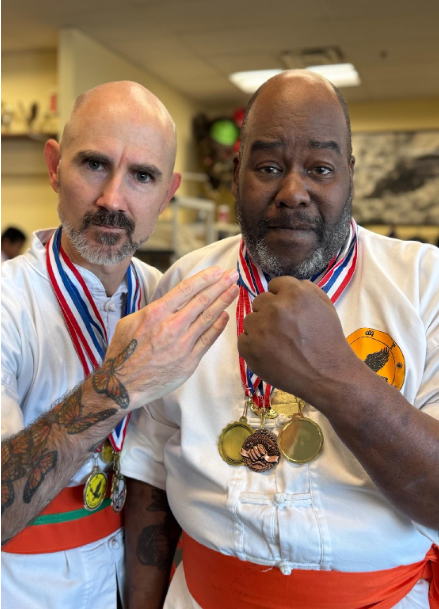
One of the Finest Chinese Martial Arts Schools in the Country
Some of the best competitors and teachers that I've ever met come from this fine school. It has a tradition of excellence in all they do. Grandmaster Huang, Chien-Liang and the US Kuo Shu Academy build champions with integrity.
Nelson Ferriera
Master Instructor for Zhong Yi Kung Fu Association
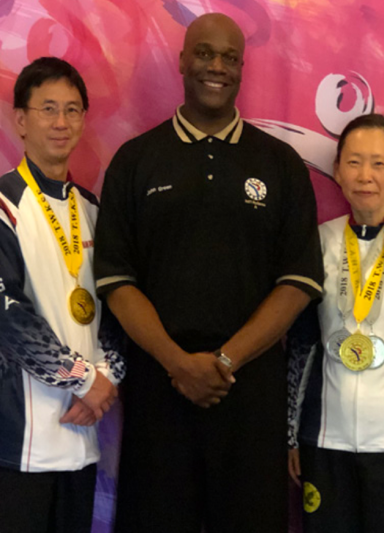
The School has Transformed my Life.
The school has transformed my life and made me a better man body and soul. It's really special to witness the transformation of the the youth at the school as well. The staff at the school really care about the students and each other. This is all so vital to our youth for they are the future of things to come.
Bruce Seward
Logistics Specialist
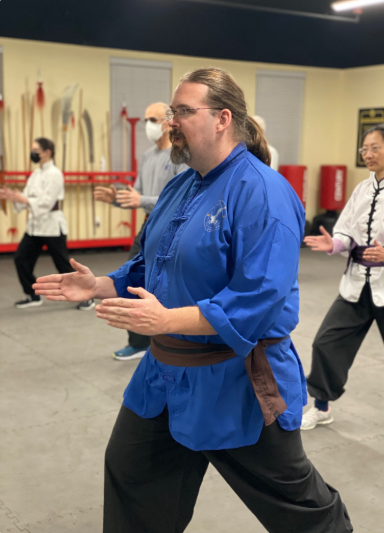
USKSA is not just a Chinese martial arts school, it’s a lifestyle
How lucky it was, that we stopped by USKSA. Instantly it becomes an irreplaceable part of life. And not just for my daughter, mine as well, since I became a student too. USKSA is not just a Chinese martial arts school, it is a lifestyle. It is a family. The school changed my life I can proudly say: I am a better person now, stronger (mentally and physically), even happier than I've been before I joined the USKSA. There is not enough good words to say. Thank you.
Alex Reznikov
Engineer at Alleviation Institute, LLC
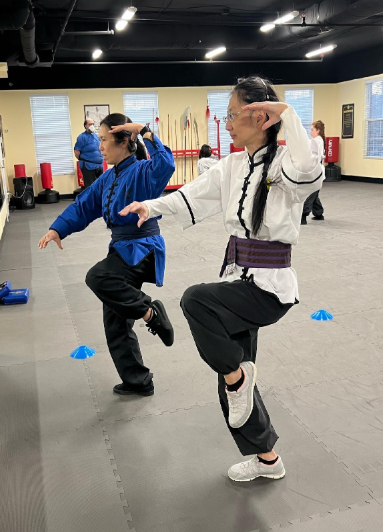
I am learning how to be a Better Person
I am proud to study at US Kuo Shu Academy for Three Main Reasons. The instructors provide superior quality teaching and have in-depth knowledge of martial arts principles The genuine passion for teaching authentic martial arts, The sincere attitude that permeates every class that I am not just learning how to be a better martial artist, I am learning how to be a better person.
Steve Smith
Owner of Mindful Healing Acupuncture
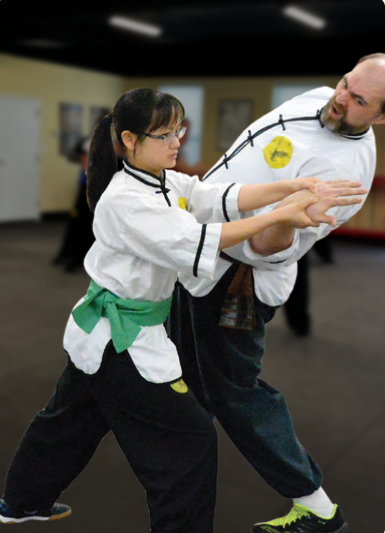
Made me healthier physically and mentally and more focused & organized at work
It has helped me keep my sanity! Made me healthier physically and mentally and more focused and organized at work. I am a better person, writer, and mother because of my experiences at USKSA. And it's been the "village" that has helped my sons learn about values and character and hard work. If you want to change your life for the better, if you want to give your children tools...then this is the place.
Xylia Hall
Accountant at CareFirst
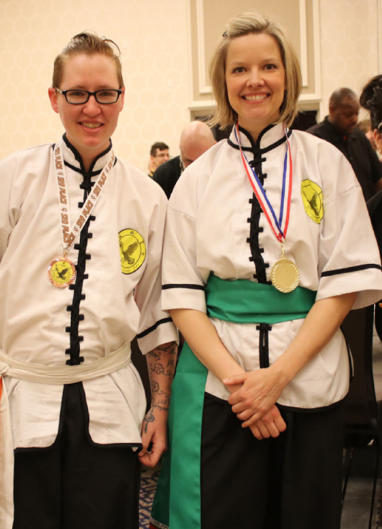
Nothing Short of Amazing
The US Kuo Shu Academy is an amazing, traditional martial arts school with stellar instructors and an incredibly well-developed curriculum. My experience there - both at Owings Mills and in Marriottsville - has been nothing short of amazing. The Tai Chi program provides an incredibly layered experience that combines both the meditative/health aspects of Tai Chi, along with the martial aspects of the form. They truly care about their students, and provide expertise and support in an environment that is both caring and rigorous. Whether your interest in Tai Chi or Kung Fu, meditation or martial practice, this is the place to be.
Margaret Boas
Professor at Anne Arundel Community College
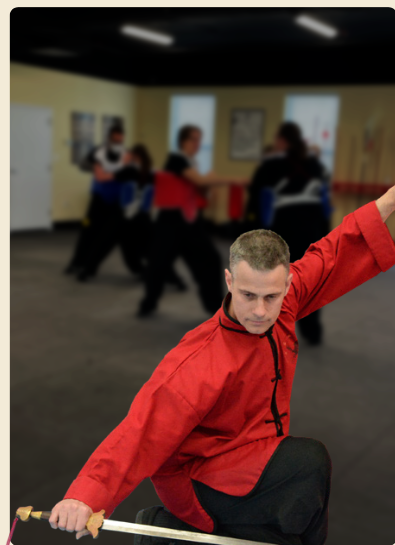
I’ve gained a sense of self-confidence I had never realized
My association with this system began 7 years ago. My only goal at the time was to have a form of exercise in my life that didn't bore me. I was very overweight and was in desperate needs of getting in shape. In addition to helping me lose over 100 lbs, I've gained a sense of self-confidence I had never realized was missing from my life. I've made friendships that will last the rest of my life. I've been mentored by some amazing people, and I've had the great honor to mentor some amazing people.
Jeramy Hansen
Scientist at Johns Hopkins University Applied Physics Laboratory
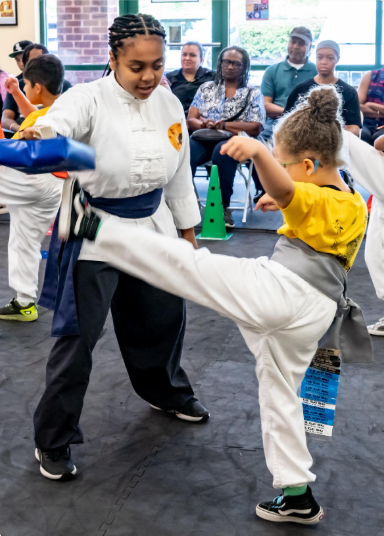
I’ve gained a sense of self-confidence I had never realized
My association with this system began 7 years ago. My only goal at the time was to have a form of exercise in my life that didn't bore me. I was very overweight and was in desperate needs of getting in shape. In addition to helping me lose over 100 lbs, I've gained a sense of self-confidence I had never realized was missing from my life. I've made friendships that will last the rest of my life. I've been mentored by some amazing people, and I've had the great honor to mentor some amazing people. Joining US Kuo Shu Academy was one of the best decisions I've ever made.
Jeramy Hansen
Scientist at Johns Hopkins University Applied Physics Laboratory
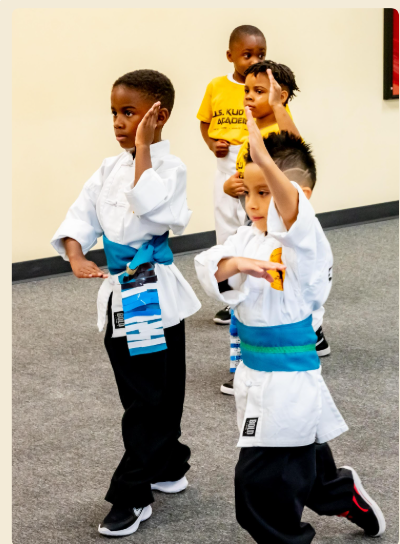
Nothing Short of Amazing
The US Kuo Shu Academy is an amazing, traditional martial arts school with stellar instructors and an incredibly well-developed curriculum. My experience there - both at Owings Mills and in Marriottsville - has been nothing short of amazing. The Tai Chi program provides an incredibly layered experience that combines both the meditative/health aspects of Tai Chi, along with the martial aspects of the form. They truly care about their students, and provide expertise and support in an environment that is both caring and rigorous. Whether your interest in Tai Chi or Kung Fu, meditation or martial practice, this is the place to be.
Margaret Boas
Professor at Anne Arundel Community College
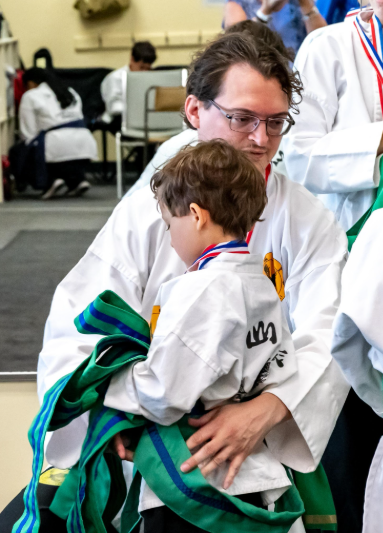
I am learning how to be a Better Person
I am proud to study at US Kuo Shu Academy for Three Main Reasons. The instructors provide superior quality teaching and have in-depth knowledge of martial arts principles The genuine passion for teaching authentic martial arts, The sincere attitude that permeates every class that I am not just learning how to be a better martial artist, I am learning how to be a better person.
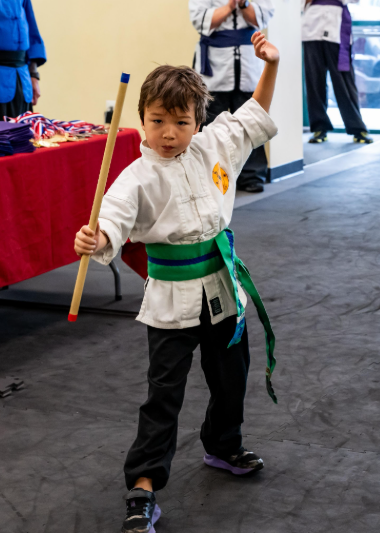
USKSA is not just a Chinese martial arts school, it’s a lifestyle
How lucky it was, that we stopped by USKSA. Instantly it becomes an irreplaceable part of life. And not just for my daughter, mine as well, since I became a student too. USKSA is not just a Chinese martial arts school, it is a lifestyle. It is a family. The school changed my life I can proudly say: I am a better person now, stronger (mentally and physically), even happier than I've been before I joined the USKSA. There is not enough good words to say. Thank you.
Alex Reznikov
Engineer at Alleviation Institute, LLC
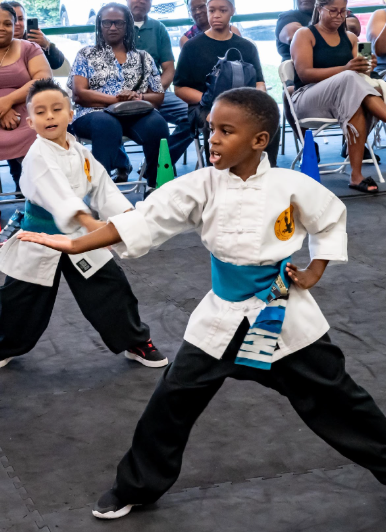
The School has Transformed my Life
The school has transformed my life and made me a better man body and soul. It's really special to witness the transformation of the the youth at the school as well. The staff at the school really care about the students and each other. This is all so vital to our youth for they are the future of things to come.
Bruce Seward
Logistics Specialist
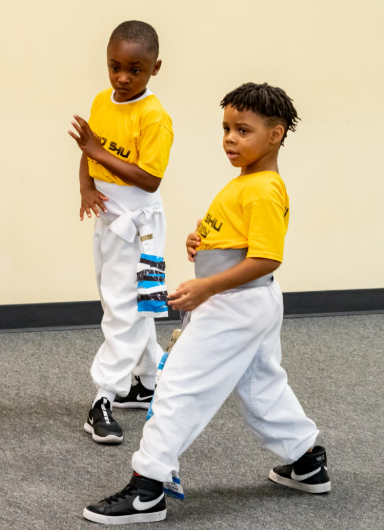
One of the Finest Chinese Martial Arts Schools in the Country
Some of the best competitors and teachers that I've ever met come from this fine school. It has a tradition of excellence in all they do. Grandmaster Huang, Chien-Liang and the US Kuo Shu Academy build champions with integrity.
Nelson Ferriera
Master Instructor for Zhong Yi Kung Fu Association
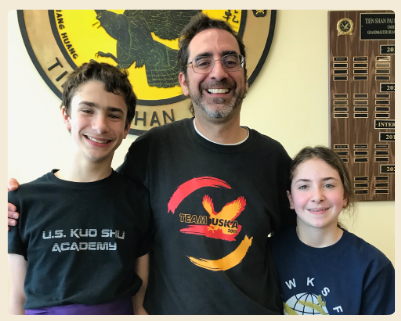
The Best School of Martial Arts
My children have been students for more than 4 years now and they love this school of martial arts. US Kuo Shu Academy is their second home, learning not just Kung Fu but also developing one’s character as a good, responsible, respectful and disciplined citizen. Thank you very much Grandmaster Huang. Master Michael Hung and all the teachers and students for making this place the best school of martial arts.
Irvin Lee
Parent of two at USKSA
Martial Arts for Children & Adults
SIGN UP FOR FREE LESSON
No Experience Necessary